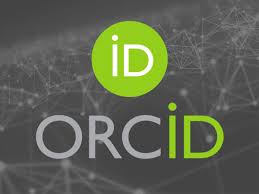Promise of artificial intelligence in the treatment of dementia
Keywords:
artificial intelligence, dementia, early diagnosis, personalized treatment, ethics, digital healthAbstract
Dementia is a neurodegenerative disease that affects millions of people worldwide. Artificial intelligence has emerged as a promising tool to improve the management of numerous medical conditions. The objective of this article is to critically analyze the potential of this technology to transform the diagnosis and treatment of this disease. The progressive cognitive decline that characterizes dementia demands innovative solutions, and here this tool emerges as a key ally: its ability to process large volumes of clinical and neuroimaging data allows for the identification of hidden patterns, facilitating earlier and more accurate diagnosis. Additionally, machine learning algorithms can personalize therapies to optimize treatment response and improve patients' quality of life. However, its implementation requires scientific rigor and robust clinical validation. In conclusion, artificial intelligence represents a paradigm shift in the management of dementia, offering tools for more predictive and personalized medicine. If we integrate these technologies ethically and based on evidence, we can mitigate the impact of this disease on millions of people.
Downloads
References
1. Organización Mundial de la Salud. Demencia [Internet]. Ginebra: OMS; 2023 [Acceso: 15/06/25]. Disponible en: https://www.who.int/es/news-room/fact-sheets/detail/dementia
2. Farina N, Turana Y, Theresia I. Modifiable risk factors for dementia in Indonesia: Results from STRiDE project. Neurology Asia. 2023 [Acceso: 15/06/25]; 28(4): 1009-1017. Disponible en: https://pearl.plymouth.ac.uk/pms-research/818
3. Shin J. Dementia Epidemiology Fact Sheet 2022. [Internet]. Annals of Rehabilitation Medicine. 2022[Acceso: 15/06/25], 46(2):53-59. Disponible en: https://www.semanticscholar.org/paper/41c6525686cdce3e3bfb1ecd47af3527d0613
4. Javaid S, Giebel C, Khan MAB, Hashim MJ. Epidemiology of Alzheimer’s disease and other dementias: rising global burden and forecasted trends. F1000Research. 2021[Acceso: 15/06/25]; 10:425. [Acceso: 15/06/25].Disponible en: https://f1000research.com/articles/10-425/v1
5. Gustavsson A, Norton N, Fast T, Frölich L. Global estimates on the number of persons across the Alzheimer's disease continuum. Alzheimer Dement. 2023[Acceso: 15/06/25]; 19(2):158-670. Disponible en: https://alz-journals.onlinelibrary.wiley.com/doi/abs/10.1002/alz.12694
6. Miller O. Dementia in Europe Yearbook 2022: Employment and Related Social Protection for People with Dementia and Their Carers. US Neurology. 1 Edición. Alzheimer Europa; 2023[Acceso: 15/06/25]. Disponible en: https://touchneurology.com/alzheimers-disease-dementia/journal-articles/dementia-in-europe-yearbook-2022-employment-and-related-social-protection-for-people-with-dementia-and-their-carers/
7. Huang Y, Li X, Liu Z, Huo J, Guo J, Chen Y, et al. Projections of the economic burden of care for individuals with dementia in mainland China from 2010 to 2050. [Internet]. PLoS ONE. 2022[Acceso: 15/06/25]; 17(2):e0263077. Disponible en: https://journals.plos.org/plosone/article?id=10.1371/journal.pone.0263077
8. Tahami Monfared AA, Phan NTN, Pearson I. A systematic review of clinical practice guidelines for Alzheimer's disease and strategies for future advancements. Neurol Ther. 2023[Acceso: 15/06/25]; 12(4): 1257-1284. Disponible en: https://link.springer.com/article/10.1007/s40120-023-00504-6
9. Canady VA. FDA approves new treatment for Alzheimer's disease. Mental Health Weekly. 2023[Acceso: 15/06/25]; 33(3): 6-7. Disponible en: https://onlinelibrary.wiley.com/doi/abs/10.1002/mhw.33505
10.Sahu M, Sahu H, Gupta P, Kumari S, Sahu S, Kumari A. Chapter Three - Artificial Intelligence and Machine Learning in Precision Medicine: A Paradigm Shift in Big Data Analysis. [Internet]. En: Teplow DB, editor. Progress in Molecular Biology and Translational Science. Academic Press. 2022[Acceso: 15/06/25]; 190(1): 57-100. Disponible en: http://www.sciencedirect.com/science/article/pii/S1876162322000078.
11.Wang H, Jin Q, Li S, Liu S, Wang M, Song Z. A comprehensive survey on deep active learning and its applications in medical image analysis. [Internet]. ArXiv. 2023 [Acceso: 15/06/25]:2310.14230v3. Disponible en: https://arxiv.org/abs/2310.14230
12. Ayus I, Azad C. Recent Advances in Multimodal Machine Learning for Parkinson's disease Diagnosis: A Comprehensive Review. 2023 2nd International Conference on Ambient Intelligence in Health Care (ICAIHC). [Internet]. 2023. [Acceso: 15/06/25]. Disponible en: https://ieeexplore.ieee.org/document/10431435/
13. Thatere A, Verma P, Reddy KTV, Umate LV. A Short Survey on Alzheimer's Disease: Recent Diagnosis and Obstacles. [Internet]. 2023 1st DMIHER International Conference on Artificial Intelligence in Education and Industry 4.0 (IDICAIEI). 2023 [Acceso: 15/06/25]. Disponible en: https://ieeexplore.ieee.org/document/10406885/
14. Mijwil MM, Al-Mistarehi AH, Abotaleb M, El-kenawy E-SM, Ibrahim A, Abdelhamid AA, et al. From Pixels to Diagnoses: Deep Learning's Impact on Medical Image Processing-A Survey. [Internet]. Wasit Journal of Computer and Mathematics Science. 2023 [Acceso: 15/06/25]; 2(3):8-14. Disponible en: https://www.semanticscholar.org/paper/47ef8d11d546169b23a8806e3d91ba6e26f0ffa2
15. Kaggie J. Addressing machine learning challenges with microcomputing and federated learning. [Internet]. The Lancet Digital Health. 2024[Acceso: 15/06/25] 6(2): e88-e89. Disponible en: https://doi.org/10.1016/s2589-7500(23)00266-2
16. Gharat V. The evolution of healthcare: embracing artificial intelligence in medicine. [Internet]. National Journal of Medical Research. 2023 [Acceso: 15/06/25]; 13 (3):66-67. Disponible en: https://www.semanticscholar.org/paper/6233158a603e1b4d2fb3edf663defe255557a11e
17. Dave M, Patel A. Artificial Intelligence in Healthcare and education. British Dental Journal. 2023 [Acceso: 15/06/25]; 234: 761-764. Disponible en: https://www.resaerchgate.net/publication/371045022_Artificial_intelligence:in_healthcare_and_education.
18. Adiga R, Biswas T, Shyam P. Applications of Deep Learning and Machine Learning in Computational Medicine. Journal of Biochemical Technology. 2023. [Acceso: 15/06/25]; 14(1):1-6. Disponible en: https://www.semanticscholar.org/paper/3856c3ff83cd49f1292f8b1eaeb6a591615f5972
19. Tipton K, Leas B, Flores E, Jepson C, Aysola J, Cohen JB, et al. Impact of Healthcare Algorithms on Racial and Ethnic Disparities in Health and Healthcare. Rockville (MD). Agency for Healthcare Research and Quality. 2023 [Acceso: 15/0 6/25]; 24. EHC004. Disponible en: https://www.semanticscholar.org/paper/ca303ec5eefea94c4169090
20.Cary MP, Zink A, Wei S, Olson A, Yan M, Senior R, et al. Mitigating Racial And Ethnic Bias And Advancing Health Equity In Clinical Algorithms: A Scoping Review. [Internet]. Health Affairs. 2023[Acceso: 15/0 6/25]; 42 (10):1359-1368. Disponible en: https://www.healthaffairs.org/doi/10.1377/hlthaff.2023.00553
Downloads
Published
How to Cite
Issue
Section
License
Copyright (c) 2025 Mercedes Zamora Mallet, Ariagna Martínez Chile , Enrique Esteban Garcés, Ángel Manuel Santos Martínez

This work is licensed under a Creative Commons Attribution-NonCommercial 4.0 International License.









